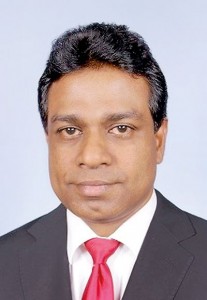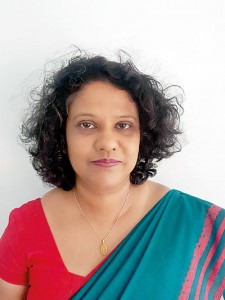News
SLMA sets up Task Force for Palliative Care
The Palliative and End of Life Care Task Force, a major initiative of the Sri Lanka Medical Association (SLMA), was launched yesterday.

Dr. Dilhar Samaraweera
A Clinical Practical Guide Book with the main focus of palliative care for non-cancer patients was also launched at the ceremony held in the SLMA auditorium in Colombo 7, under the guidance of SLMA President Prof. Chandrika Wijeyaratne, as also a web-page on this crucial field of medicine on the SLMA website.
The Task Force will be chaired by Consultant Physician Dr. Dilhar Samaraweera attached to the Colombo South (Kalubowila) Teaching Hospital, while the Convener is Consultant Physician Dr. Udayangani Ramadasa attached to the Balangoda Base Hospital. Both these physicians have a special interest in palliative care. The Secretary of the Task Force is the Medical Officer-in-Charge of the Amugoda Primary Medical Care Unit, Elpitiya, Dr. Sankha Randenikumara.
Explaining why the Guide Book deals with palliative care for non-cancer patients, Dr. Ramadasa is quick to point out that such care for cancer patients is usually well-accepted. However, with Sri Lanka facing a huge non-communicable disease (NCD) epidemic, there is a large burden of chronic diseases which involve major morbidity and long-term care of patients with end-stage diseases.
“Palliative care should be considered a basic human right and our aim should be to provide care for all, irrespective of the underlying life limiting illness or the socio-economic status of the patient,” she says, adding that palliative care is looking after patients suffering from chronic, progressive incurable diseases. It includes end-of-life care where the patients may have a major disability, suffering and distress, ultimately ending in death. With cure not being a possibility, providing relief from suffering, be it physical, social, spiritual or psychological, is the cardinal goal. The support system for patients should also cover their family members.
“Although the concept of palliative care is emerging in Sri Lanka, its implementation in routine clinical practice is lagging behind and is far below expectations. This is why the SLMA as the apex national medical organisation has taken up this cause, having identified this ‘unmet’ need in the country’s health sector. The SLMA also understands its role in the national responsibility of looking after these patients who have no hope of a cure,” says Dr. Ramadasa.
Palliative care activities have been initiated by individuals and organisations and the SLMA hopes to link them to achieve a common goal. Stepping ahead, the SLMA had decided to launch the Task Force under its NCD Sub-committee, with the objectives of:
Educating and training health staff and incorporating palliative care into the undergraduate and postgraduate curricula of heath-care providers.
Developing guidelines and reading material and also conducting public awareness programmes, as the Health Ministry’s National Steering Committee of Palliative Care has recognised the Task Force as an important resource organisation.
Strongly recommending to the Health Ministry and the Post Graduate Institute of Medicine to identify Palliative Medicine as an independent specialty.

Dr. Udayangani Ramadasa

Dr. Sankha Randenikumara

